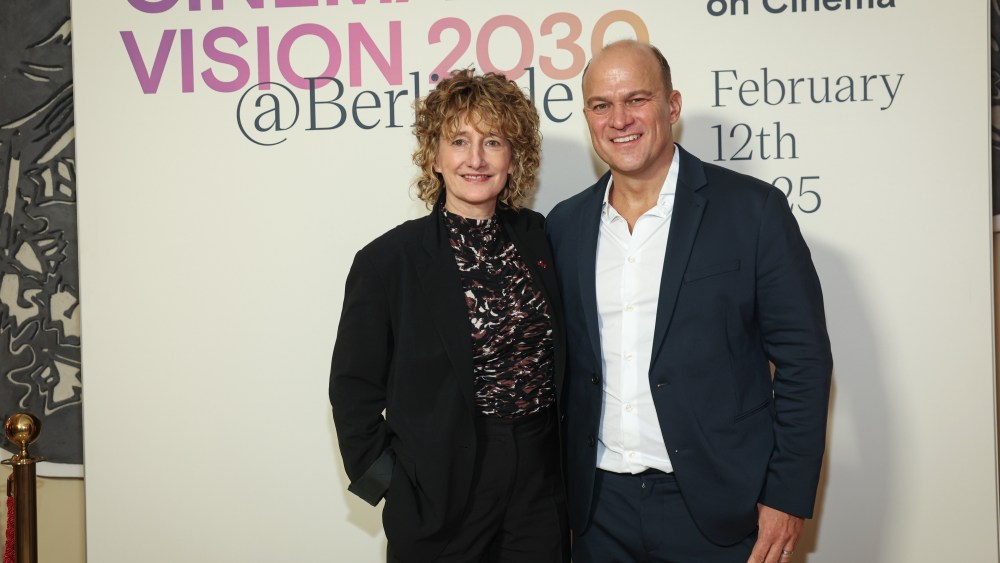At the Cinema Vision 2030 conference organized by AG Kino – Gilde, the new director of the Berlin International Film Festival (Berlinale), Tricia Tuttle, emphasized the crucial role of independent cinema and her vision for expanding the festival’s reach beyond Berlin. With the Berlinale celebrating its 75th edition, Tuttle highlighted her commitment to making the festival more accessible to audiences across Germany while strengthening ties with exhibitors and distributors. For the first time, the festival will broadcast its opening ceremony, including the screening of Tom Tykwer’s film The Light, in cinemas across seven German cities: Düsseldorf, Frankfurt, Hamburg, Cologne, Leipzig, Munich, and Stuttgart. This initiative reflects Tuttle’s broader strategy to decentralize the festival and bring it closer to audiences nationwide.
Tuttle, who previously served as the head of the BFI London Film Festival from 2018 to 2022, drew on her experience in expanding the reach of film festivals. During her tenure at the BFI, she successfully grew the audience by 76%, in part by taking films to independent exhibitors across the U.K. She expressed a similar interest in supporting independent cinemas outside of Berlin by sharing the festival’s programming with a wider audience. However, she acknowledged the challenges of replicating this strategy for the Berlinale, particularly given the festival’s focus on world premieres. Unlike the BFI, where films were often closer to their domestic release dates, the Berlinale’s lineup frequently includes films that have not yet been sold or distributed, making it harder to coordinate nationwide screenings.
In discussing the Berlinale’s extensive program, Tuttle highlighted her enthusiasm for supporting new and emerging filmmakers, particularly through the festival’s new competition category, Perspectives. This initiative aims to showcase the work of first-time filmmakers, who Tuttle believes bring a fresh, bold, and adventurous spirit to cinema. She emphasized the importance of elevating these voices, not only for artistic reasons but also because they often attract significant interest from the market. While she clarified that she wouldn’t program films solely based on market potential, she acknowledged that increasing the visibility of these works could benefit both filmmakers and the broader industry.
Tuttle also addressed the diversity of the Berlinale’s program, dismissing the idea that it was a direct response to the current global political climate. Instead, she described the lineup as a reflection of her passion for storytelling and her excitement about bringing unique perspectives and underrepresented voices to the forefront. She stressed that diversity is not a “box-ticking exercise” but rather a natural outcome of curating a rich and engaging program. This approach, she argued, makes for a better and more enriching cinematic experience for all audiences.
Another key focus of Tuttle’s vision is attracting young audiences to the Berlinale. Drawing from her success at the BFI, where she made significant strides in engaging younger viewers, she emphasized the importance of understanding and addressing the needs of this demographic. One major challenge, she noted, is the cost of attending film festivals, which can often feel exclusive. To address this, Tuttle expressed her commitment to making the Berlinale more affordable and accessible, whether through discounted tickets or other initiatives. She believes that fostering a connection with young audiences is vital for the festival’s longevity and vitality.
In summary, Tricia Tuttle’s vision for the Berlinale centers on expanding its reach, supporting independent exhibitors, celebrating emerging filmmakers, and engaging diverse audiences, including younger viewers. By taking steps to decentralize the festival, highlight fresh talent, and address barriers to access, Tuttle aims to ensure that the Berlinale remains a vibrant and inclusive celebration of cinema for years to come. Her approach reflects a deep understanding of the challenges and opportunities facing film festivals in the modern era, as well as a genuine passion for the power of storytelling to connect people and enrich cultures.









